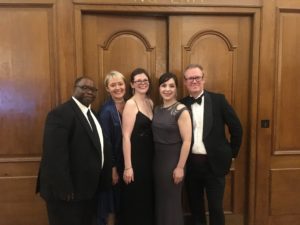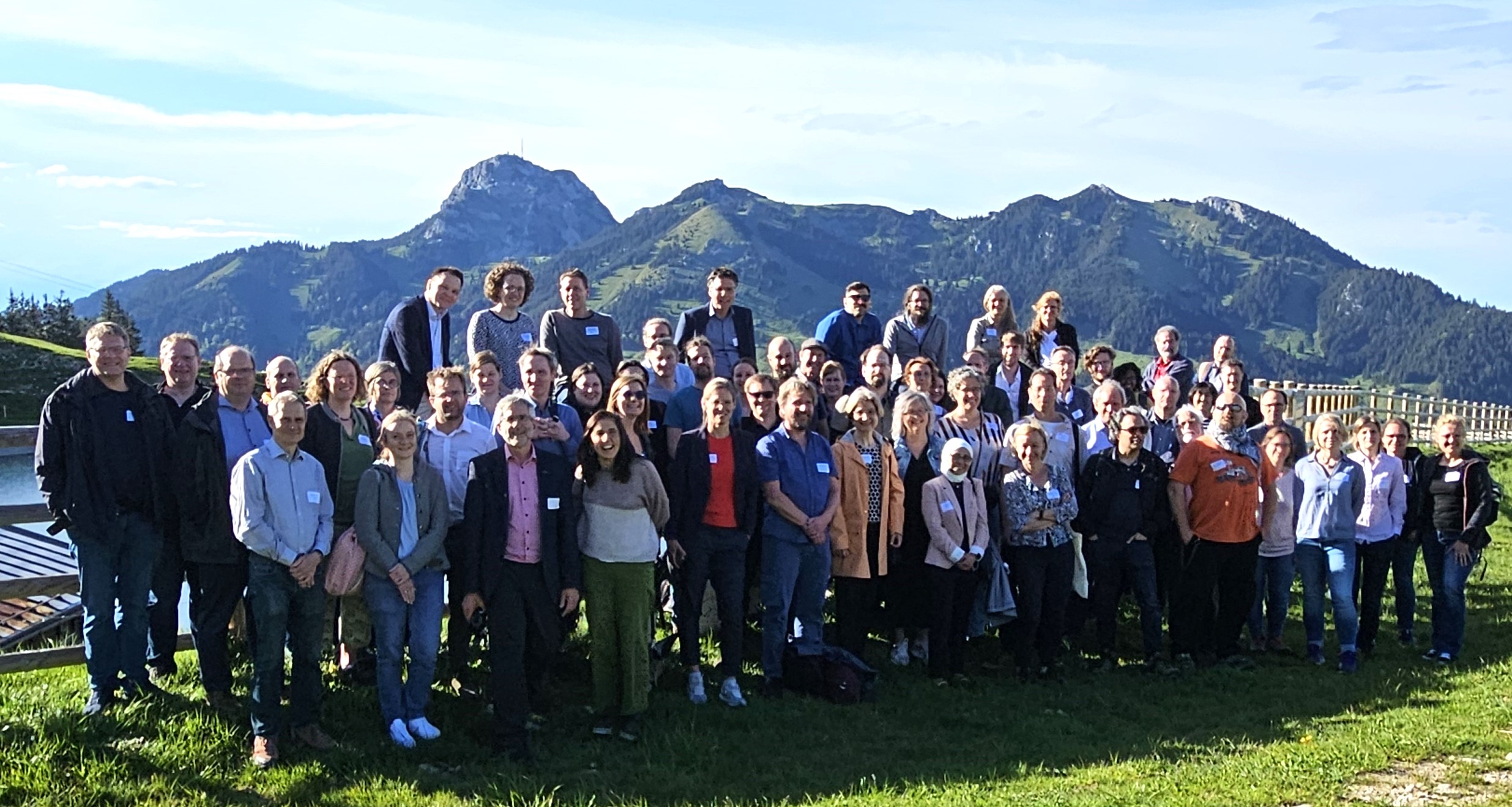Proceedings and videos of keynotes The conference proceedings and recorded keynote videos from the 12th…
 Staff from UCL Engineering was honoured with a prestigious teaching award at a ceremony in London last week.
Staff from UCL Engineering was honoured with a prestigious teaching award at a ceremony in London last week.
The team behind UCL’s innovative teaching framework, The Integrated Engineering Programme (IEP) have been awarded the Collaborative Award for Teaching Excellence (CATE) awarded and funded by the Higher Education Academy. The prize is awarded for excellence in educational leadership, innovation in teaching, teamwork and collaboration, dissemination and impact. UCL were one of only 6 institutions nationally to take home an award.
Speaking after the awards ceremony, Emanuela Tilley Director of the IEP, said:
“Winning the HEA CATE award is fantastic recognition of UCL Engineering’s drive to embed innovation and collaboration in our teaching practices and the student learning experience. I’m thrilled and honoured to share this award with over 200 colleagues across UCL Engineering who have come together to develop and deliver the Integrated Engineering Programme.”
She went on to say that the efforts of all those involved in the IEP’s design and implementation had helped it become “a modern engineering education which enables our undergraduates to make a positive impact on lives around the world today and in the future as UCL graduates.”
Reinforcing UCL’s ethos in education
The IEP is a key example of UCL’s ‘Connected Curriculum’ – a commitment to research-based learning and enquiry. UCL’s Arena Centre (formerly the Centre for the Advancement of Learning and Teaching) views the IEP as a ground-breaking example of the university’s curriculum innovation.
UCL President and Provost Michael Arthur confirmed this view when he said:
“The IEP is the most comprehensive implementation of the philosophy of the Connected Curriculum to date. For a research-intensive university of the size of UCL, the Connected Curriculum initiative and the emphasis on research-based education is itself unique. Within this, the IEP, which spans 8 departments and has involved over 200 staff in revising the core of what is often a very traditional curriculum, is unprecedented. It represents one of the largest education change management programmes at UCL in recent history. The drive to develop the IEP came from within UCL Engineering itself led by a dedicated and highly skilled team, supported by the Connected Curriculum initiative.”
He continued:
“I am absolutely delighted that the IEP team have won this award. In the three short years since its introduction to students, UCL Engineering’s Integrated Engineering Programme has rapidly become a reference point for what becomes possible when staff and students make genuine transformation their unwavering aim, and refuse to surrender that aim in the face of difficulties. They have worked persistently, creatively and determinedly to live up to their strapline ‘Change the World’.”
An integrated approach
The IEP was developed to address industry concerns about skills gaps amongst graduates. Its curriculum focuses strongly on interdisciplinarity, teamwork, student attitudes and practical skills and covers a broad range of work skills. Team teaching methods in both practical and theoretical modules develop students’ technical and project management experience, so student teams can produce engineering solutions which will work in real-life environments.
Professor Nigel Titchener Hooker, Dean of UCL Engineering said .
“The approach of the IEP team is really terrific. Because of the hard work of all of them, we are now in a position where we’re sending students out into the world equipped with not only the rigorous academic subject knowledge that employers expect, but also with the skills, tools and confidence that they need to solve real life engineering problems.
This HEA CATE award is a wonderful recognition of this and we as a faculty are honoured to receive it.”
Building on education strengths
The IEP is a novel undergraduate engineering teaching framework which has blended seamlessly into, and is integral to the core of, the current undergraduate degree programmes across UCL Engineering. However, the development of IEP programme is an on-going iterative process and course content, as well as the student experience, continue to be reviewed and refined based on regular feedback from staff, industry, post graduate teaching assistants (PGTAs), alumni and current students.
IEP Student Ambassadors have also been recruited and assembled to create opportunities for senior students to provide guidance and mentoring for new students coming into UCL as well as spreading the word to attract potential students to UCL Engineering.
The IEP also provides best practice training in engineering education for PGTAs who work with academic staff to deliver the IEP modules.
In addition to this, the IEP Team has presented and shared pedagogical best-practice and research at several international workshops and conferences. In partnership with the Centre for Engineering Education, members of the IEP Team are delivering pedagogy, assessment and educational leadership masterclasses for engineering lecturers in South Africa as part of a collaboration between the University of Cape Town, University of Johannesburg, Aston University and UCL.
Vice Dean (Education) and Co-Director of the Centre for Engineering Education, Prof John Mitchell said, “The IEP represents a new and radical paradigm in development of graduate engineers that emphasises the development of fundamental skills and theoretical knowledge by connecting them with research-based, practical projects.”
Looking towards the future, Emanuela has said, “Our programme is transforming the student learning experience, tackling the graduate skills-gap, raising the standard of teaching within the faculty and influencing the way engineering is being taught internationally. We are committed to sharing the experiences and outputs of the IEP and look forward to kicking off plans for academic dissemination, knowledge transfer, staff development activities and engagement in the worldwide community of practice in engineering education.”
